In a recent webinar, Roy Gil, CSM & API SME, and Jonathan Angel, Senior CSM, shared the exciting news of how our APIs extend the value of DealHub CPQ. From External Query APIs to Partner and Pricing APIs, we have an API for you! Watch this non-technical demonstration of how DealHub is primed to make quoting easier for your team.
Webinar Highlights: DealHub API Use Cases
We’re bringing you the hottest new business use cases supported by our ever-expanding API framework. Read on for how DealHub’s API can help your sales team and partners create accurate quotes in a few clicks!
External Query API
Our External Query API is very powerful for quote generation. It’s how information is imported into the playbook while you’re editing a quote. It packs information from the playbook, sends it outside where calculations or validations are made, and sends the information back into DealHub, into the playbook.
We developed this API because many of our customers requested the capability to pull external information into the playbook. Examples are shipping costs, VAT information, and the currency exchange rate. All of these must be brought into the playbook as part of the quote generation.
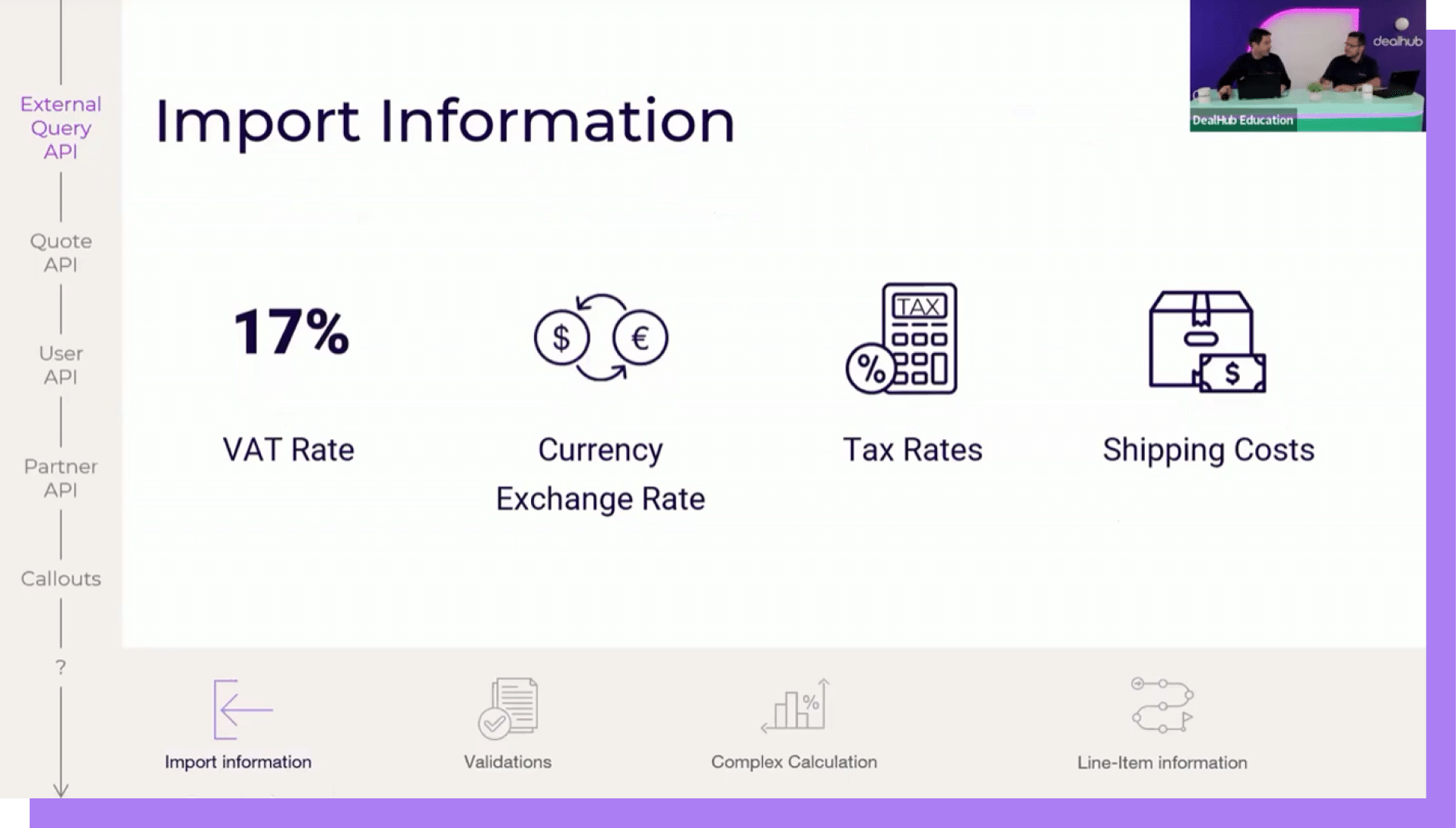
Quote Validations
To generate valid quotes, the currency type is synced from the CRM. The API fetches the information and brings it back into the quote to accurately reflect the pricing based on real-time data. So easy! And, that pricing validation guarantees no revenue leakage from inaccurate pricing or tax compliance issues.
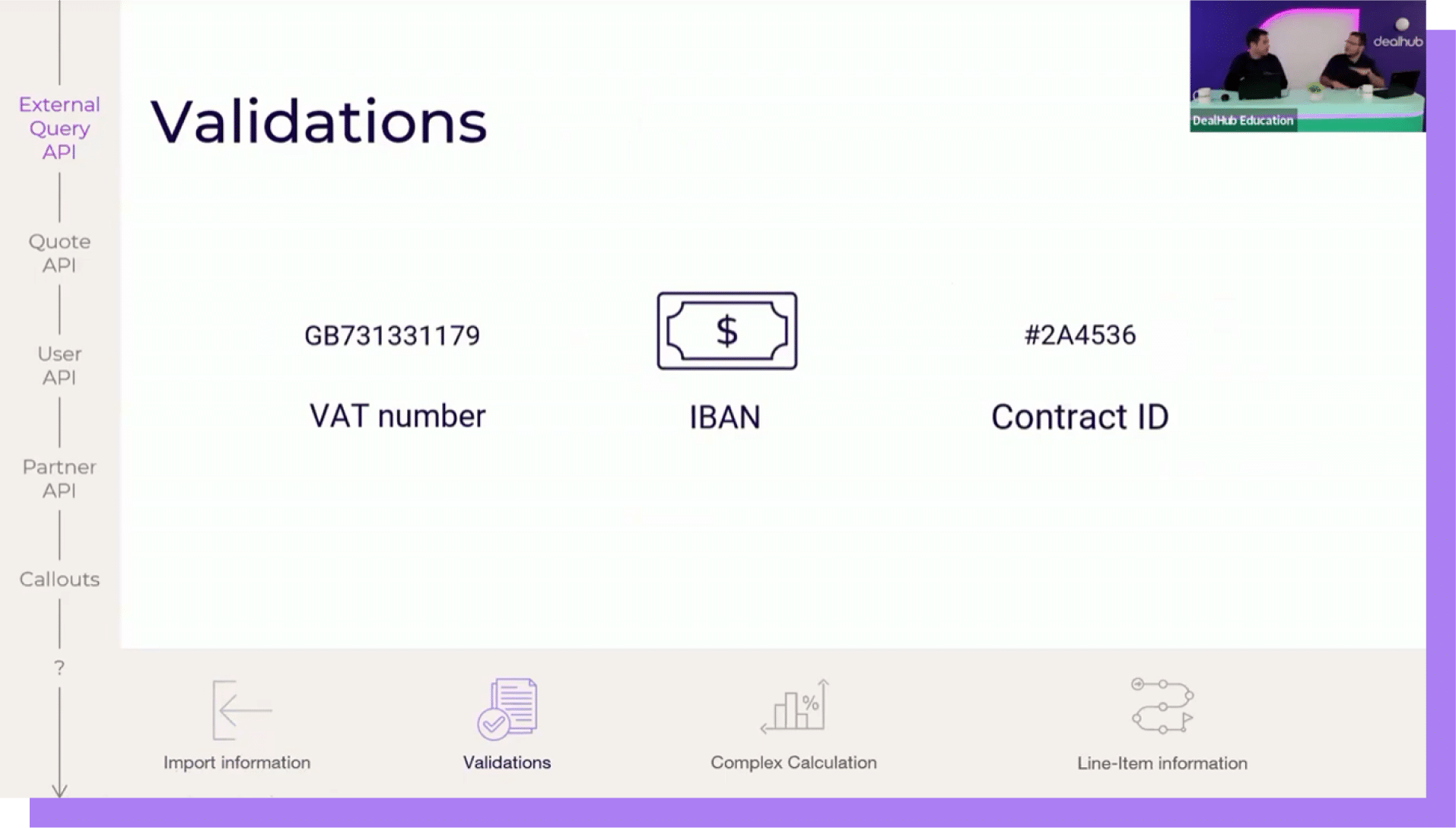
To take this use case a step further, sometimes the sales representative needs to interact with information that the user is supplying at the moment, such as a VAT number or contract ID. The quote interface has a field for VAT number; the user can enter it and it will be validated and incorporated into the playbook. While validating the VAT, the API can fetch the company name, address, and other required information and incorporate it into the playbook. This information can go into the contract and quote, or you can bring it back to the CRM. You don’t need to ask the customer for the information, saving time and providing a better customer experience.
Another example is entering a country code and determining the VAT rate for that region. Pulling in the VAT rate enables users to generate valid quotes that show the net price and the price with VAT in their quote documents.
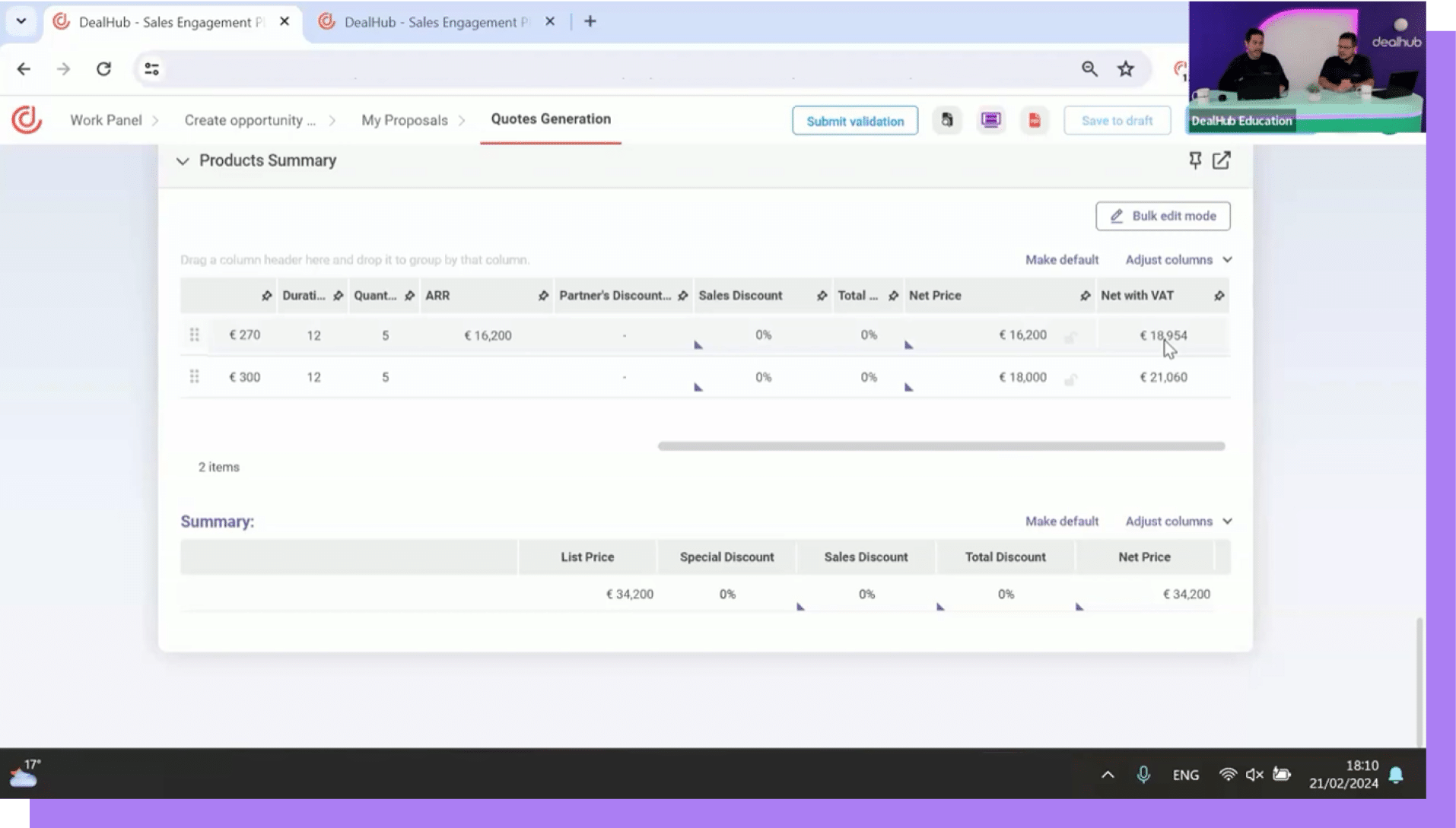
Enabling Complex Calculations
A common use case for our external query API is complex calculations. Recently a customer requested that we add internal rate of return (IRR) into their playbook. They had been taking the information out of the playbook and running the calculation in Excel, and putting it back in the playbook. That’s a very error-prone manual process.
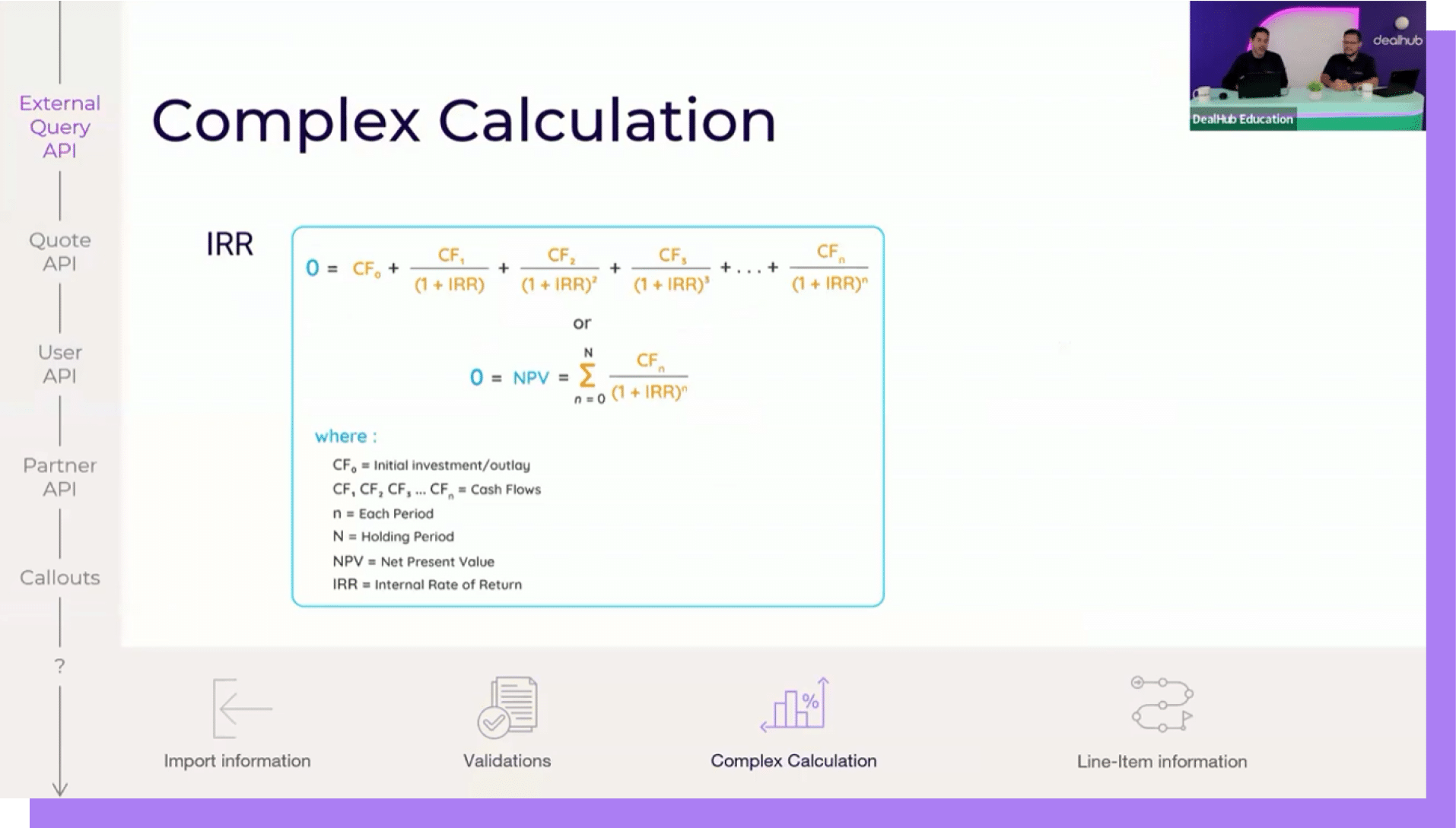
We want to offer a holistic journey for the sales rep in DealHub. We don’t want them to jump into other systems while editing the quote. We solved their problem by doing this with the API. We can pack all this information, send it outside, have it calculated, and then send it back into DealHub. In this case, the user will simply click on the button to calculate IRR.
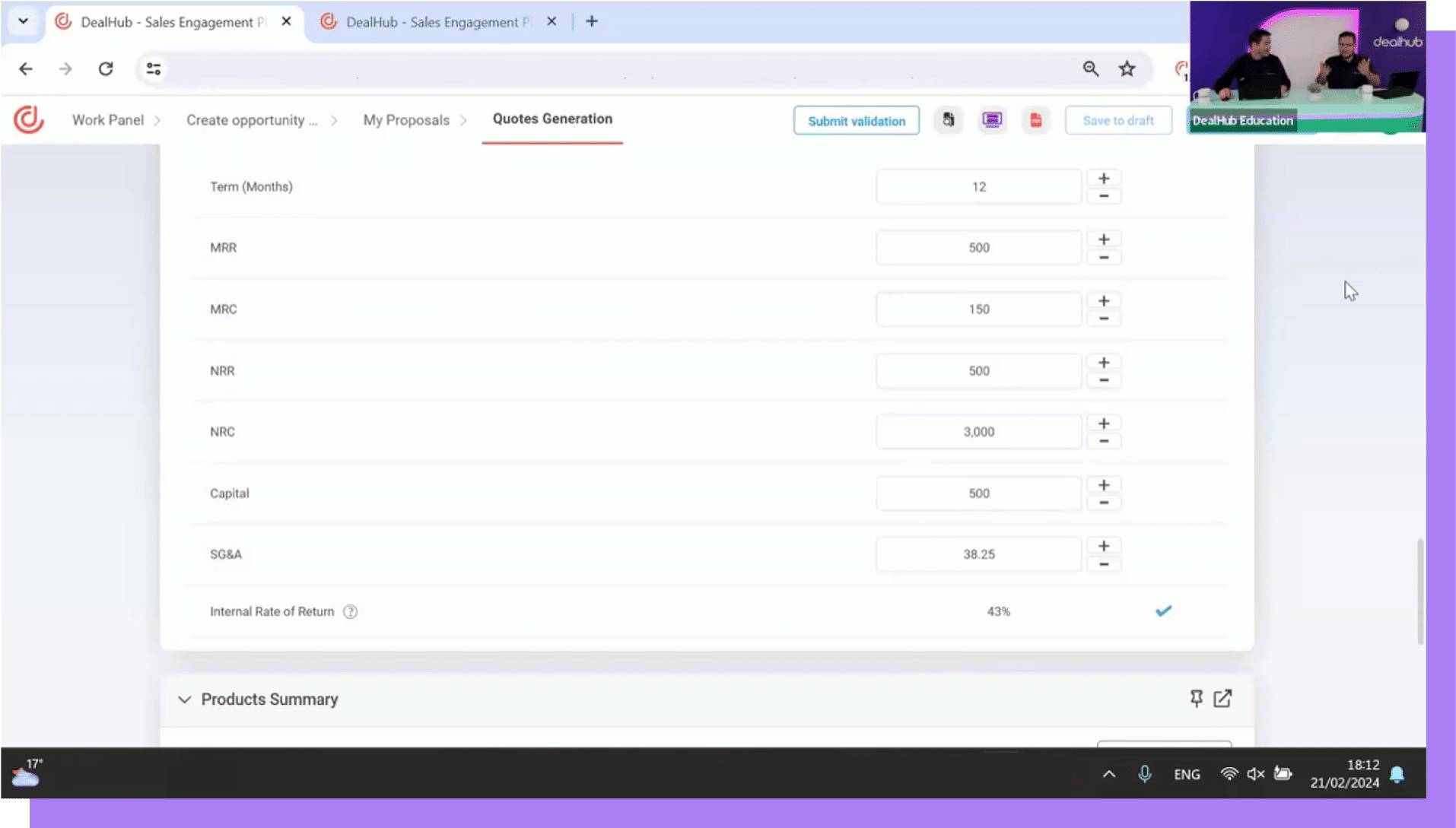
We can even take this a step further and create an approval workflow that depends directly on the profitability level of a project. For example, no one needs to approve IRR above 20%. This opens a lot of possibilities for advanced calculation inside our system.
Coming Soon!
In the next few weeks we are setting up a new capability in the external query API, which is incorporating line item information inside the information that we’re sending outside. Imagine a scenario where the salesperson has to bring in premium support or a specific onboarding package for any quote above $1 million in annual recurring revenue (ARR). Up until now there wasn’t a way to go back to the playbook after calculating the ARR and include specific line item products or services. Now, we can bring this back to the playbook level and make an additional product selection or add a relevant playbook answer.
Additionally, we can take this information and build a billing schedule based on the information that we have on the line item. This connectivity with Billing is a huge benefit for DealHub users.
Quote API
What if a deal desk team or sales manager wants to extract information from the DealHub database?
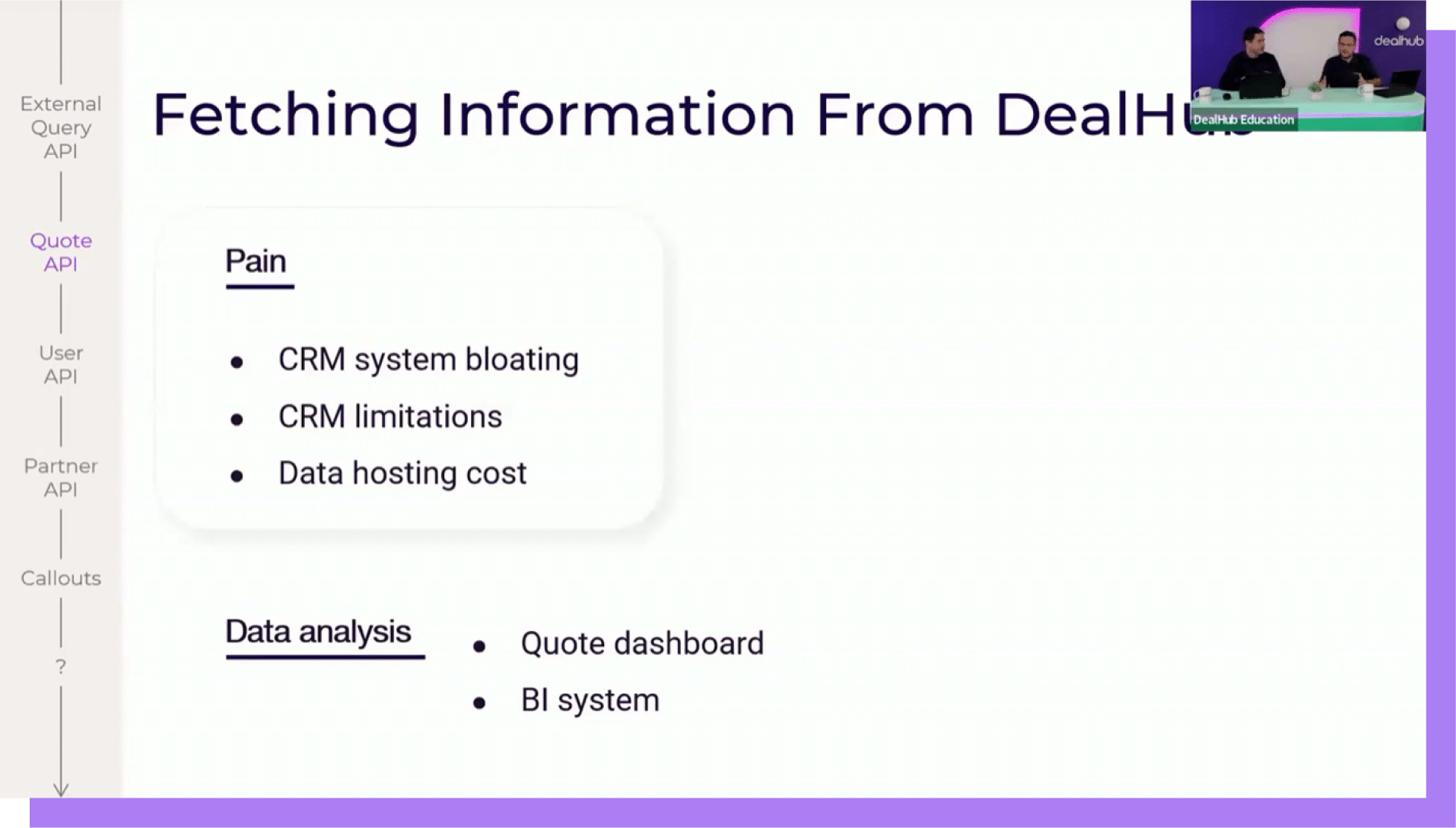
This is a very common use case, especially for RevOps teams. Many companies have BI tools, reports, and dashboards and they need to bring in as much data as they can from DealHub. Typically, we can extract it to the CRM and this is where we keep all of the line item information and quote level information. But some information isn’t native to the CRM. DealHub holds a treasure trove of information, including the quote, approval workflow and playbook selection. Anything to do with the interaction with the system is data that we can leverage for a company.
Extracting Data from DealHub
To prevent bloating the CRM, exceeding storage limitations, or incurring additional data hosting costs, we fetch the information with the quote API directly into the BI system or dashboard and avoid the use of the CRM for data storage. Think about this solution as two parts: the webhook and the quote API. First, with a webhook, DealHub will notify the system about events that happened inside DealHub. So if a user submits a quote, we can send this webhook outside notifying us that a quote with this quote ID is being submitted or a quote was approved or won. Once we know that something happened in the DealHub system, we can fetch the relevant information based on the quote API, with the quote ID we got from the webhook.

Here’s an example of a dashboard. We can log monthly proposals based on the webhook to see the average response time for each approval, and if you click on that, it’ll lead you to another screen that shows the approvers and then you can see the bottleneck and if you need to take action.
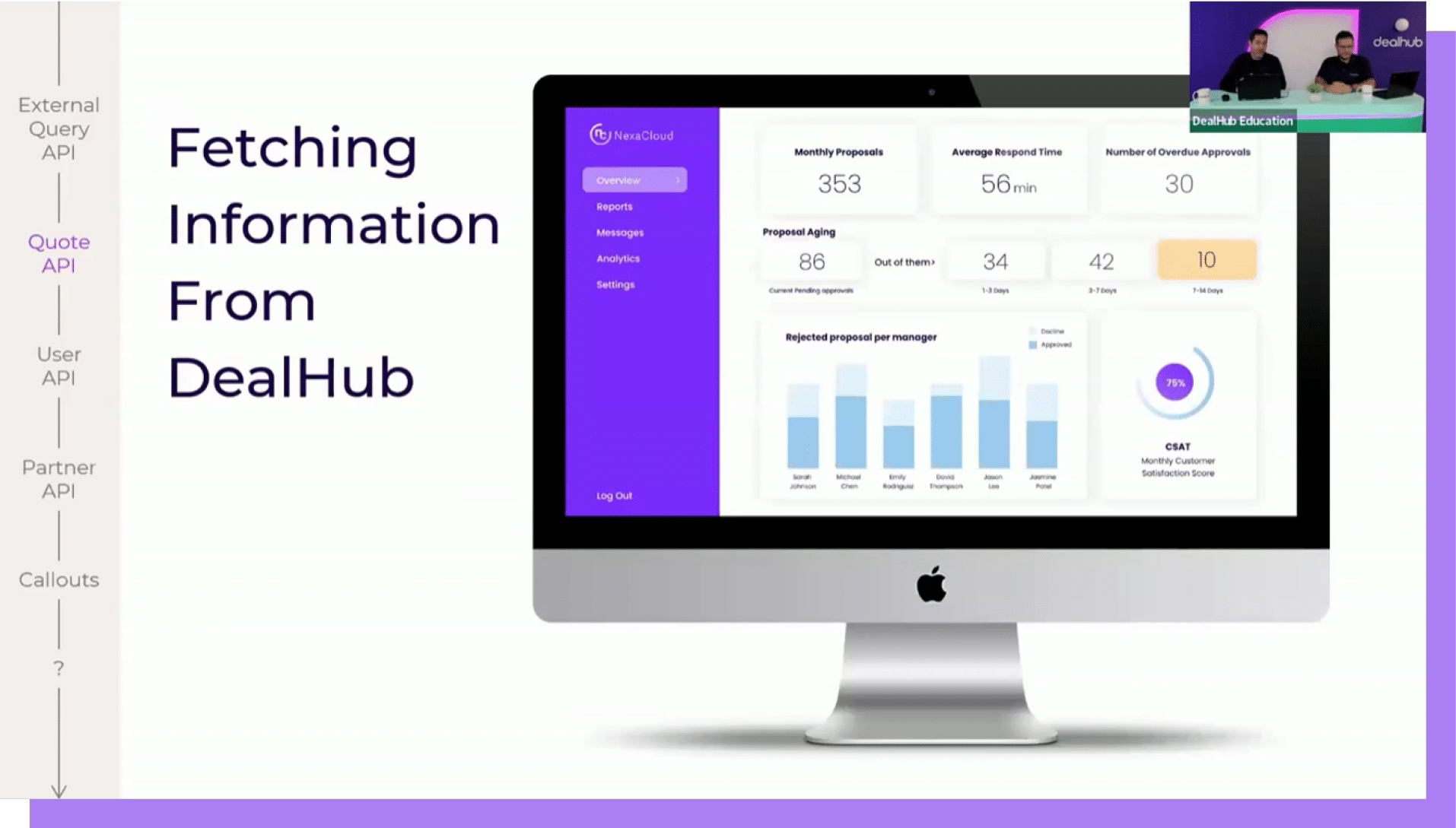
Knowing where your bottlenecks are and where you need to streamline processes is a huge value add for senior managers. They can access real-time information and drill down into specific territories or how many deals were rejected and make data-driven decisions.
Extracting Documents from DealHub
Want to extract documents from DealHub? We have an API for that too!
Let’s say your deal desk or legal team wants to extract a Word document. Typically, you wouldn’t provide that as an option to the sales team since it would bypass your approval workflow and your playbook checks and balances. Sales people can only extract PDFs. But we do want to provide a Word document for the legal team in specific circumstances such as contract review and redlining.
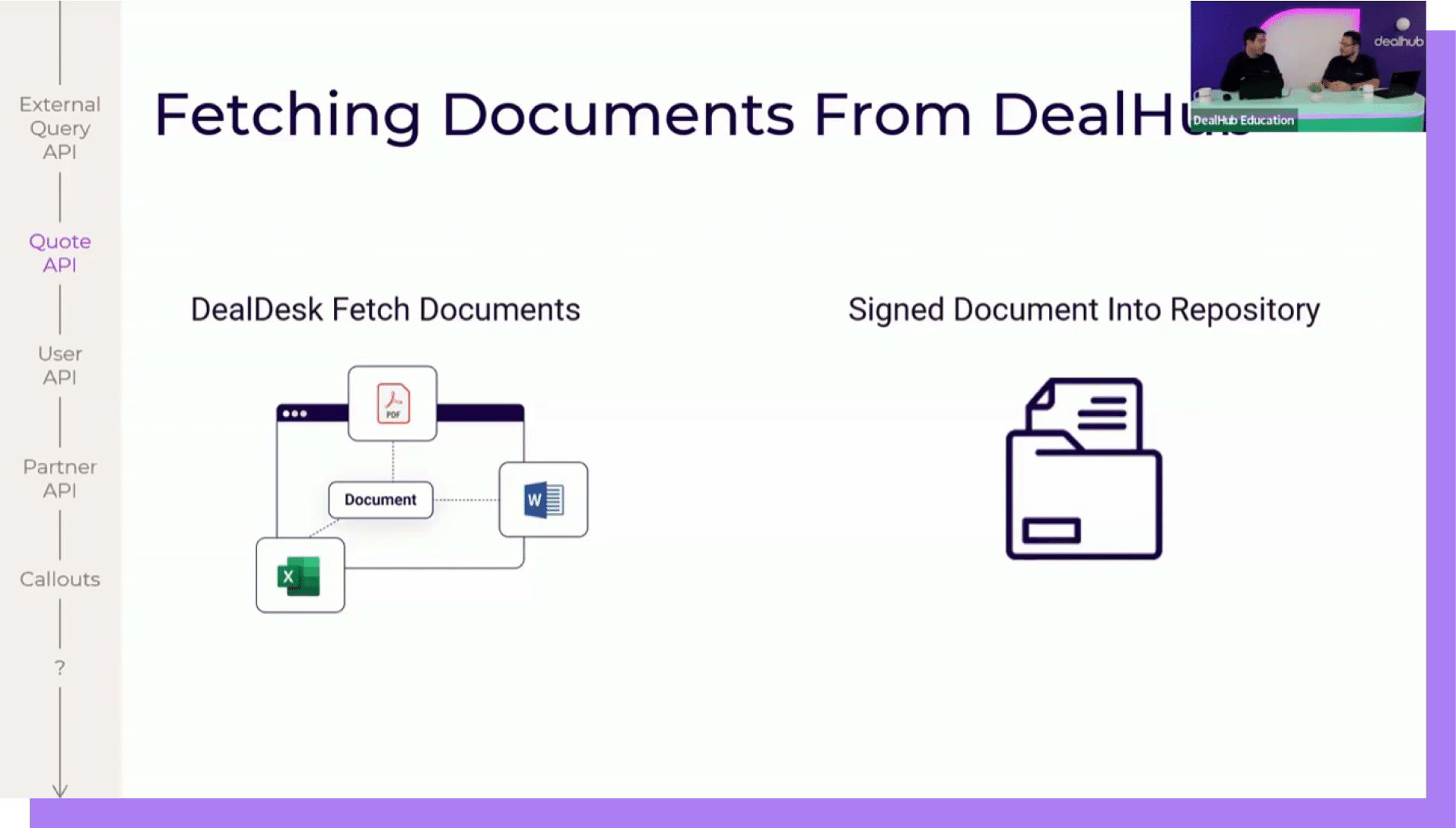
Another use case many of our customers require is the ability to extract a final signed document, order form, or contract out of a deal and put it into a dedicated repository. DealHub syncs a version of the document back to the CRM at every stage. The user can also sync it to a contract repository with the quote API after the deal is won, knowing that it’s the last document of that specific opportunity.
User API
The User API enables companies to have advanced user management.
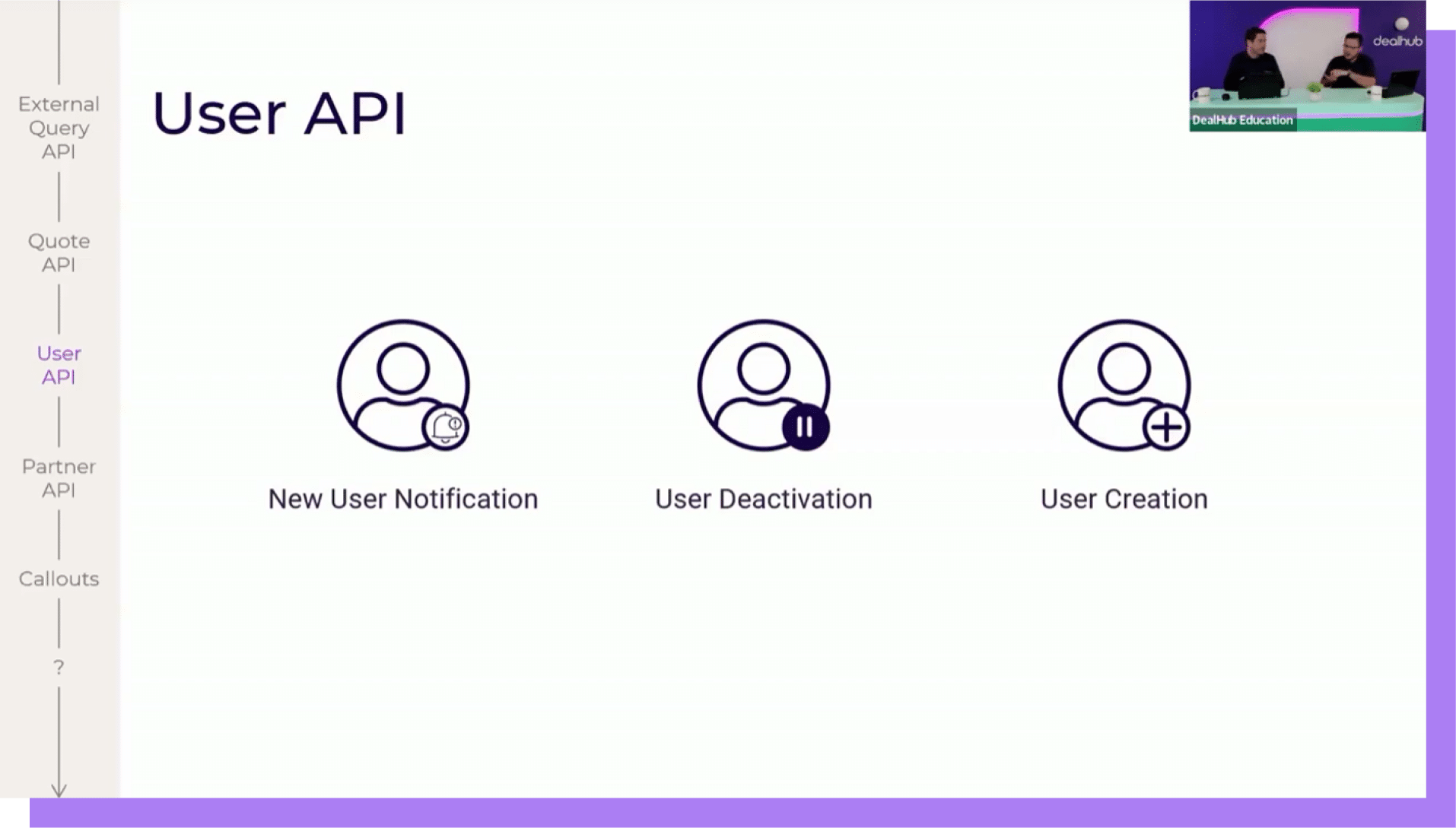
A prime use case for this capability is new user notification. If there is a new user inside the system, an admin wants to be alerted and have this visibility. We can set up a webhook that notifies the admin of a new user being created in the system by a Slack message, email message, or other method.
The same can be done with user deactivation. When someone leaves the company, you want to make sure they’re out of DealHub and cannot access your system.
Another way the User API adds value is the ability to onboard managers so they can bring their team members under them and approve their quotes. This is important automation because sales reps must be assigned their new manager to approve their quotes. Managers typically do not log into DealHub and admins are required to manually create new users and set the team under the manager. The API automates everything, freeing admins from manual work and ensuring managers have the correct team assigned to them.
Partner API
Many of our customers are enterprise organizations working with partners as part of their sales strategy. They collaborate on the opportunities, quotes, and pricing for products with their partners.
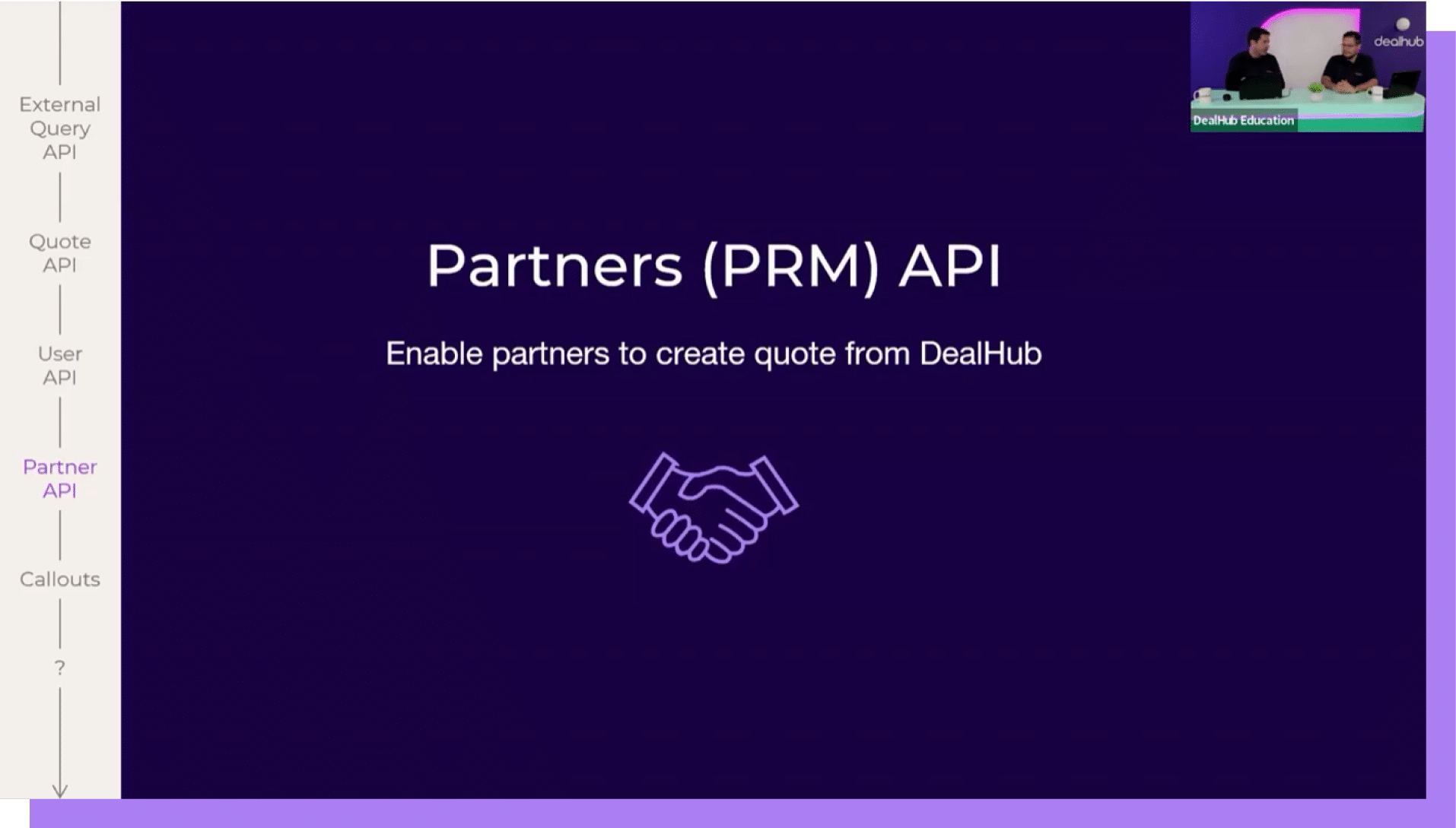
The partners typically work out of a PRM system and need to reach out first for deal registration. Once the deal has been registered, then the channels team will typically go into DealHub and create the deal based on the specifications of the partner.
If the partner needs to change something, it prolongs the sales cycle. Also, over-reliance of partners on the internal channels team for every little change creates a poor customer experience.
Working in an approved opportunity inside the Partner Relationship Management system (PRM), our Partner API enables partners to click a create quote button, the same create quote view that the internal sales team sees inside their CRM. This redirects the partner to DealHub like any organic user in the company. Additionally, uses the opportunity ID that is inside the CRM to fetch all the information needed to set a quote. Partners will be taken to a playbook that is configured for partners.
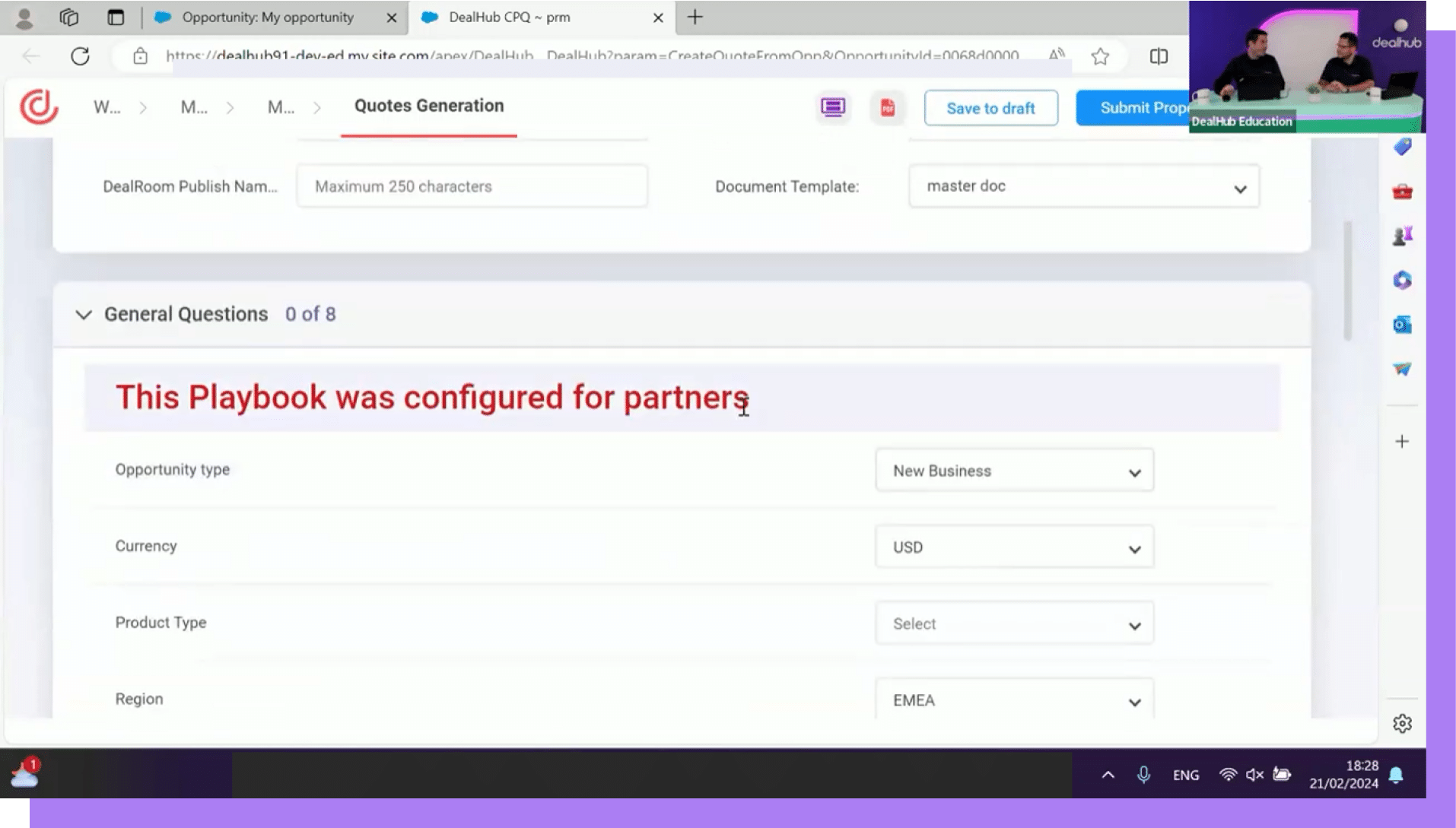
It can also be configured for the partners discount by fetching information from the CRM and displaying it in the playbook. Based on the partner, you can present different products, different questions, and different approval workflows. This gives the channels team oversight on what the partner can and cannot create.
The DealHub version can be customized based on the type of user, and we can hide or show questions, lock some of the products, and even change the pricing based on the type of user.
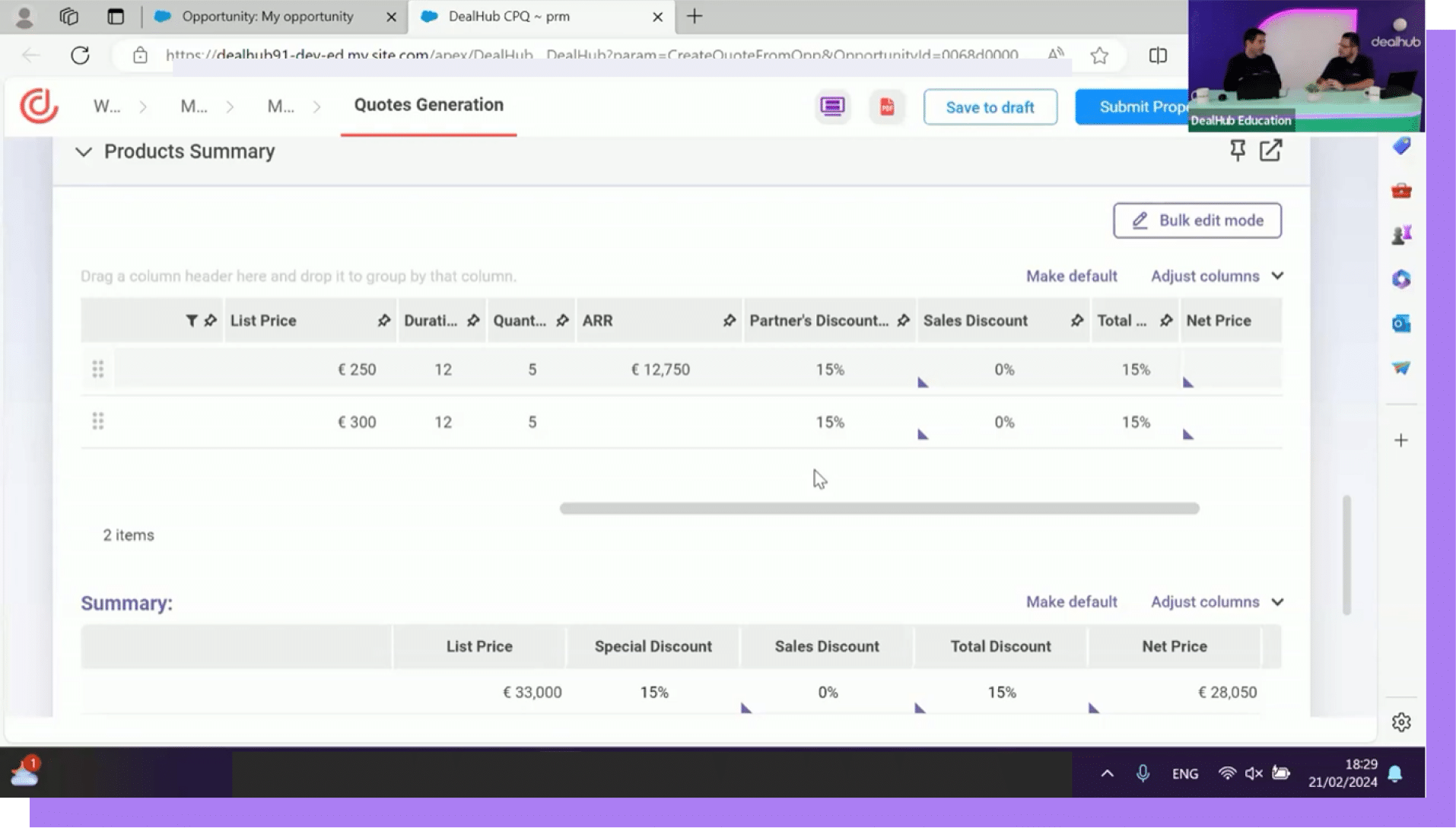
Here’s a high-level overview of how this process works.
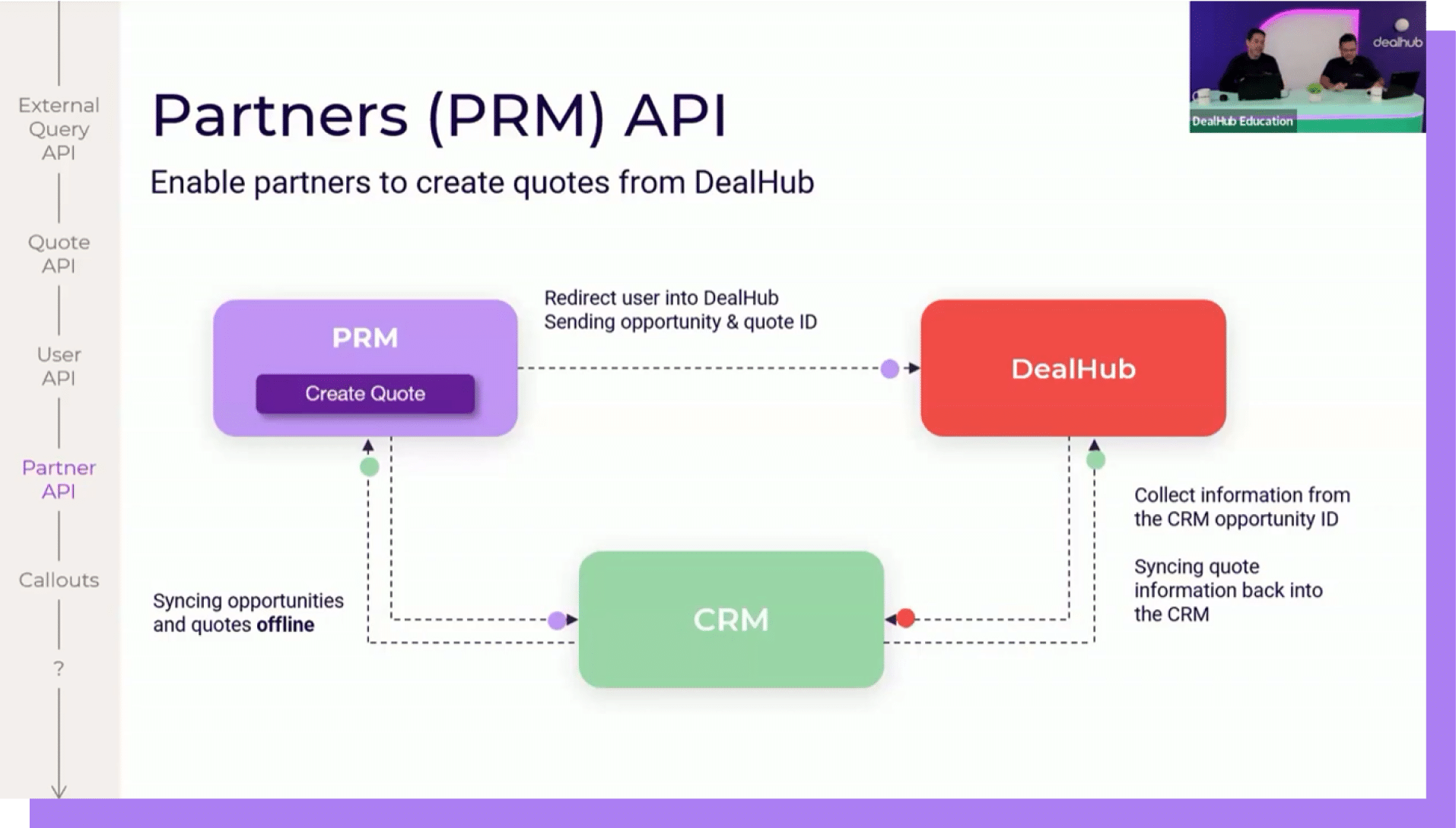
At the beginning we have the PRM/CRM system sending information and syncing offline. For example, we have a deal registration coming from the PRM, waiting for the channel team to approve it. Once we have an approved opportunity, we expose the create quote button. Clicking on that will redirect the user into DealHub, and DealHub fetches all the relevant information from the CRM.
This API is like a bridge, collecting all the information we need, bringing in the tier type and the name of the partner and setting the quote. Once the user clicks on the submit button, all the information syncs back into the CRM. Once you have the information inside the CRM system, you can decide what information to communicate to the PRM system and share with your partners.
Callouts
We have many customers who work with an ERP or a product information management system (PIM) with more than 10,000 SKUs and those SKUs get updated all the time. In that scenario DealHub admins would be updating prices frequently, activating a version for every update. So this is a slow and cumbersome process for the admins. The Callouts API can extract product prices from external systems in real-time while creating the quote. This is a huge time saver and ensures pricing is correct.
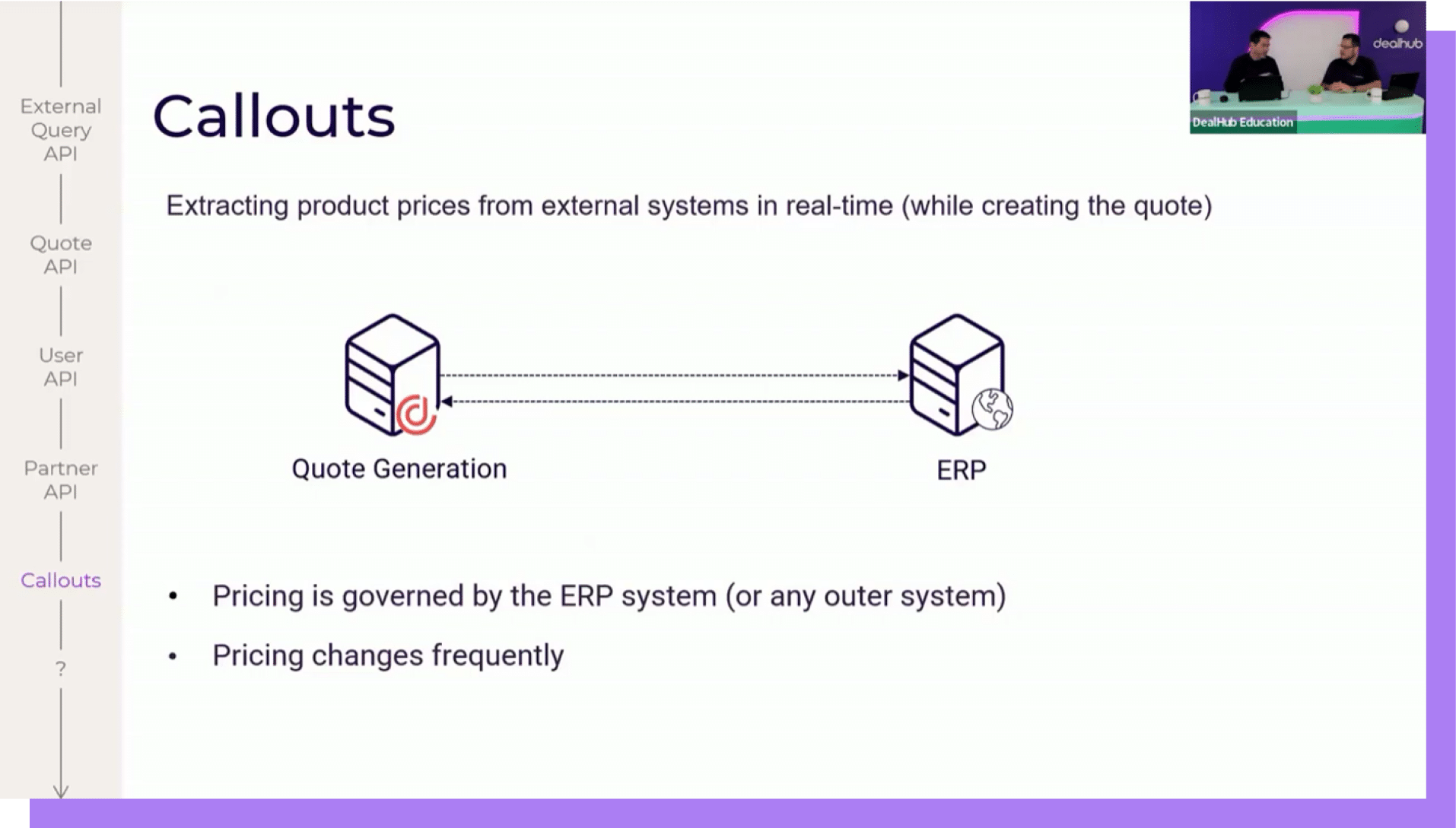
Another great use case for companies that sell products with prices that change constantly depending on external factors such as the stock market or gold prices, or even the weather. In those situations, you don’t want to go activate version after version every time that you want prices to be aligned with the new pricing data. The API will sync the pricing data in real time.
Pricing API
This brings us to our Pricing API. This is a significant capability of DealHub that adds tremendous value to sales and revenue teams! With the Pricing API, customers get accurate pricing from the DealHub active version. Because of the logic built into the system, the API enables DealHub to determine how much a product will cost depending on variables like the tier and other factors defined in an external system. The user inputs information in the fields that may impact the price. DealHub will calculate it and send back the price for a specific scenario.
The API provides quick capability or providing the customer with the price without having to create a new opportunity, a new quote, or going through the entire guided selling process, but rather quickly referencing the pricing out of DealHub.
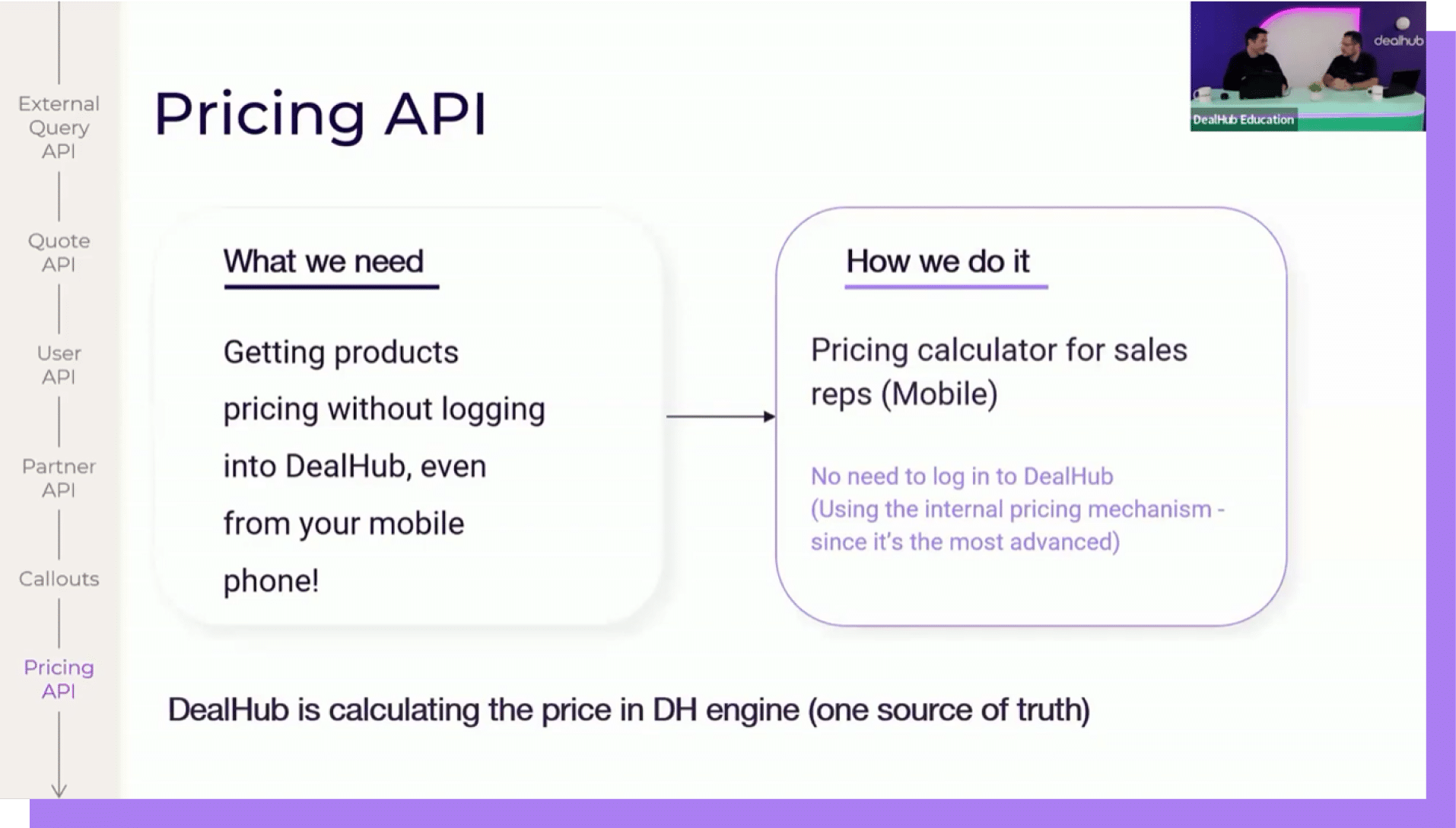
Mobile-oriented companies with sales reps who are not always in front of their laptops will love this feature. It enables salespeople to reply to prospects and customers on the fly from their mobile devices – a use case we hear often.
Here’s an example. Let’s say that the currency and location impact the pricing, and let’s say the customer wants onsite support within North America and US dollars. The sales representative can send a request, and it will be calculated inside DealHub logic based on the active version, and we get that the list price. Changing the currency and location will change the price.
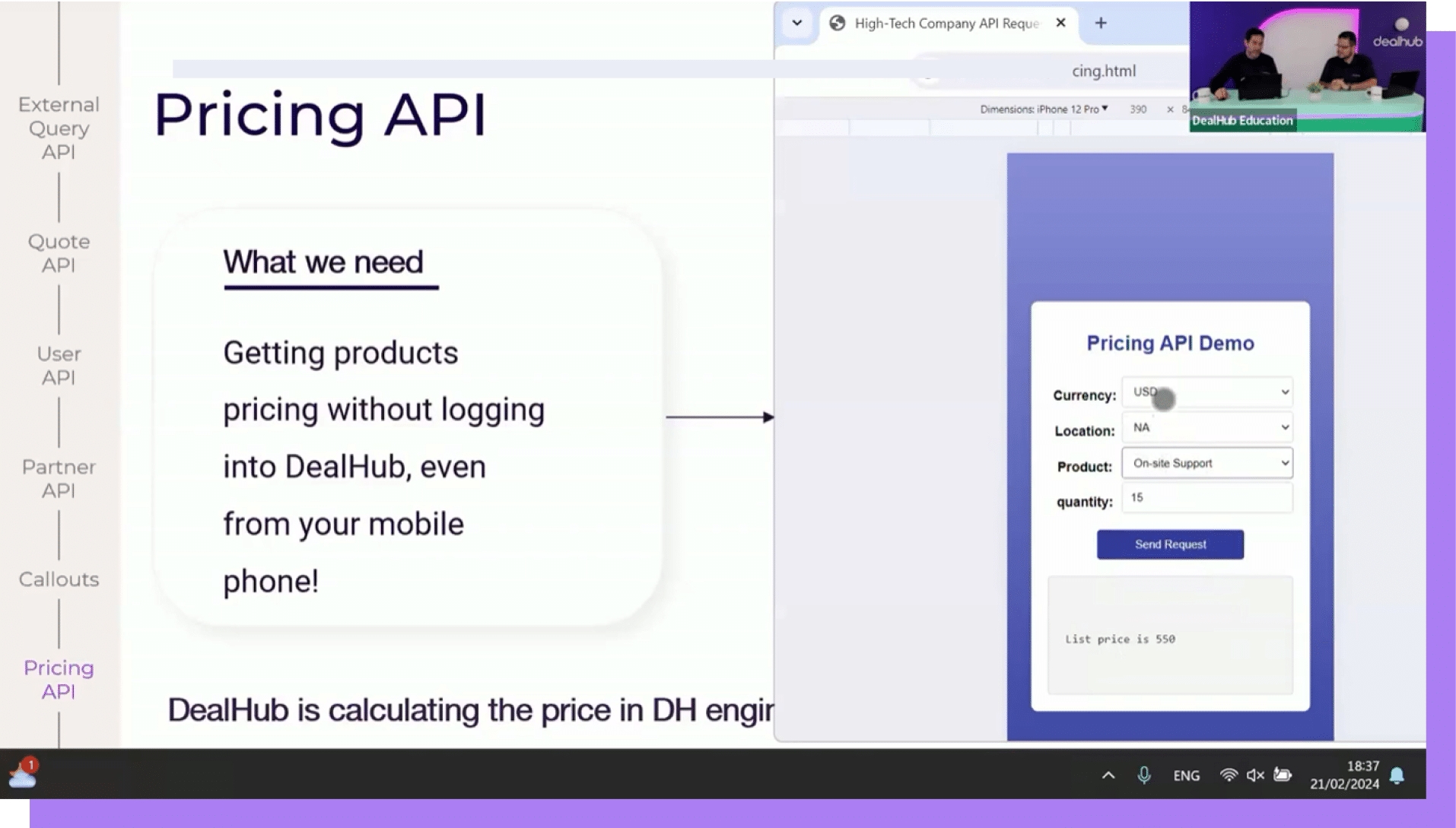
Another use case for the pricing API is if you have a self-service model or e-commerce and you want to give the pricing from DealHub to your end customers inside your website. In the example below there are three tiers. This pricing flows from DealHub and if pricing changes it will automatically appear on the website’s pricing page.
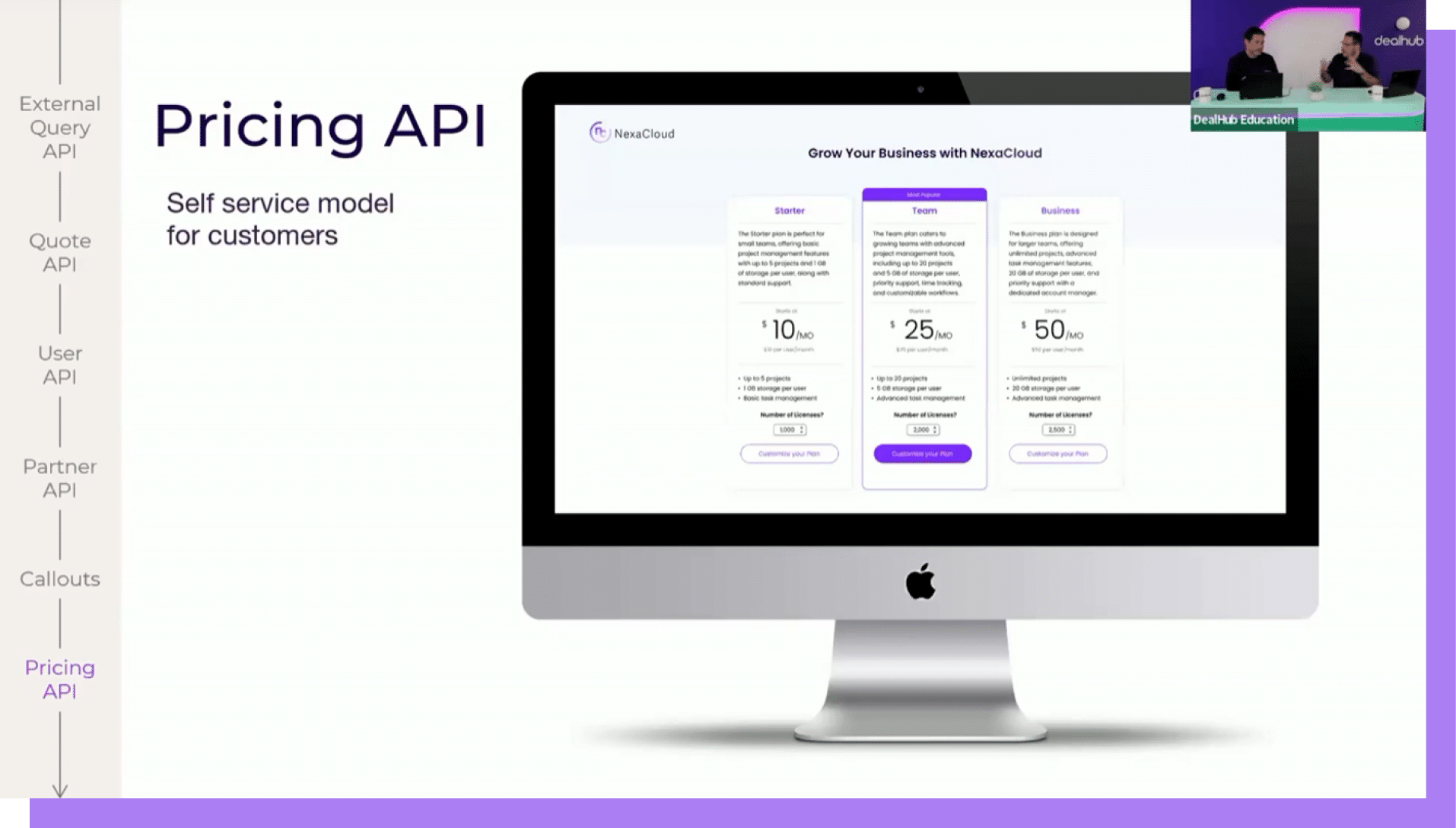
New DealHub APIs at a Glance
DealHub is evolving and broadening its capabilities via API.
- Importing data into the playbook
- Leveraging data from DealHub’s database
- Empowering partners to generate quotes
- Advanced user management
- Callouts – getting product prices from external sources
- Accessing pricing anywhere
- How to Learn More
Want more insights into how DealHub can help your organization? Be sure to register to access the full webinar on-demand recording here!




